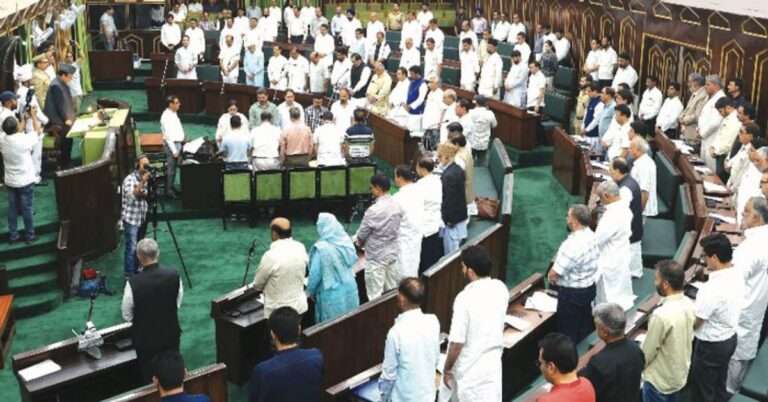
Illegal Madrasa Demolished on Government Land in Madhya Pradesh
Recently, in a significant development, an illegal Madrasa built on government land in Madhya Pradesh was demolished. This action was taken under the Waqf Act, highlighting the need to uphold the law and ensure that public property is used appropriately. The demolition of the Madrasa shed light on suspicious activities taking place on government-owned land, raising concerns about the misuse of public resources.
The incident, captured in a video that circulated online, showcased the authorities taking action against the unauthorized structure. This event serves as a reminder of the importance of adhering to regulations and respecting government property. It also emphasizes the need for transparency and accountability in land use to prevent illegal constructions and activities.
It is crucial to understand the implications of such actions and the impact they have on the community and the government. Illegal constructions not only violate the law but also pose security risks and threaten the integrity of public spaces. By demolishing the Madrasa built on government land, the authorities sent a clear message that unlawful activities will not be tolerated and that strict measures will be taken to enforce the law.
One of the key objectives of the Waqf Act is to protect and regulate Waqf properties, ensuring that they are used for the benefit of the community. By demolishing the illegal Madrasa, the authorities upheld this objective and safeguarded the integrity of government-owned land. This action also serves as a deterrent against future encroachments and unauthorized constructions, promoting compliance with laws and regulations.
The demolition of the Madrasa underscores the significance of proper land management and the need to prevent unauthorized activities on government property. It highlights the responsibility of individuals and organizations to respect public resources and adhere to legal procedures when using government-owned land. By enforcing the law and taking decisive action against illegal constructions, the authorities uphold the principles of justice and accountability.
This incident also raises questions about the oversight and monitoring of government properties, emphasizing the importance of vigilance and proactive measures to prevent encroachments. It prompts us to reflect on the role of the community in protecting public assets and ensuring their proper use. By raising awareness about such incidents, we can encourage greater public participation in safeguarding government property and holding accountable those who violate the law.
In conclusion, the demolition of the illegal Madrasa on government land in Madhya Pradesh serves as a reminder of the importance of upholding the law and protecting public resources. It highlights the need for vigilance, transparency, and accountability in land management to prevent unauthorized activities and ensure the proper use of government-owned land. By taking decisive action against illegal constructions, the authorities demonstrate their commitment to enforcing regulations and promoting the well-being of the community.
Let us all play our part in preserving the integrity of public spaces and upholding the principles of justice and responsibility. Together, we can create a society where the rule of law prevails, and public resources are used for the benefit of all.




